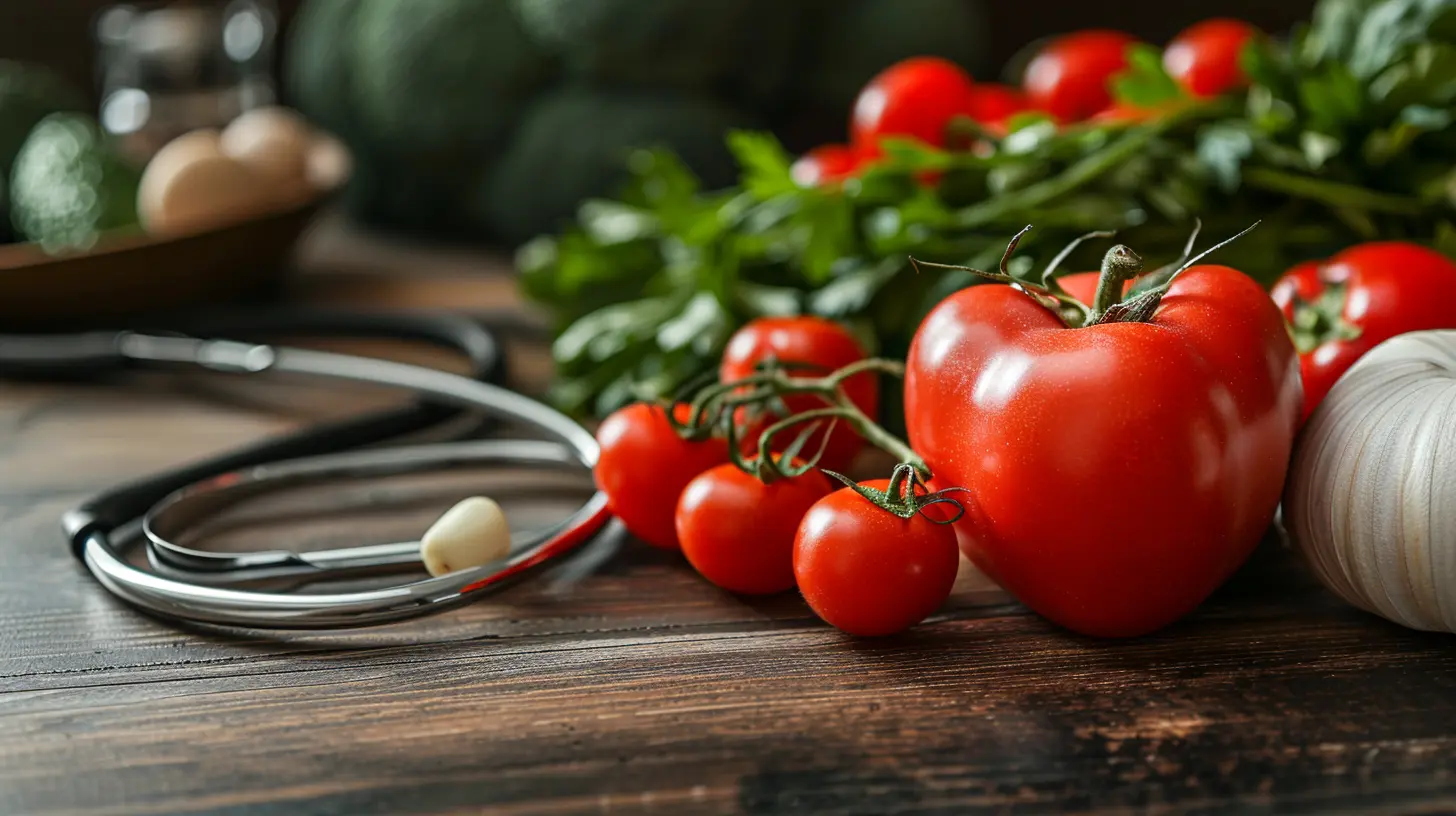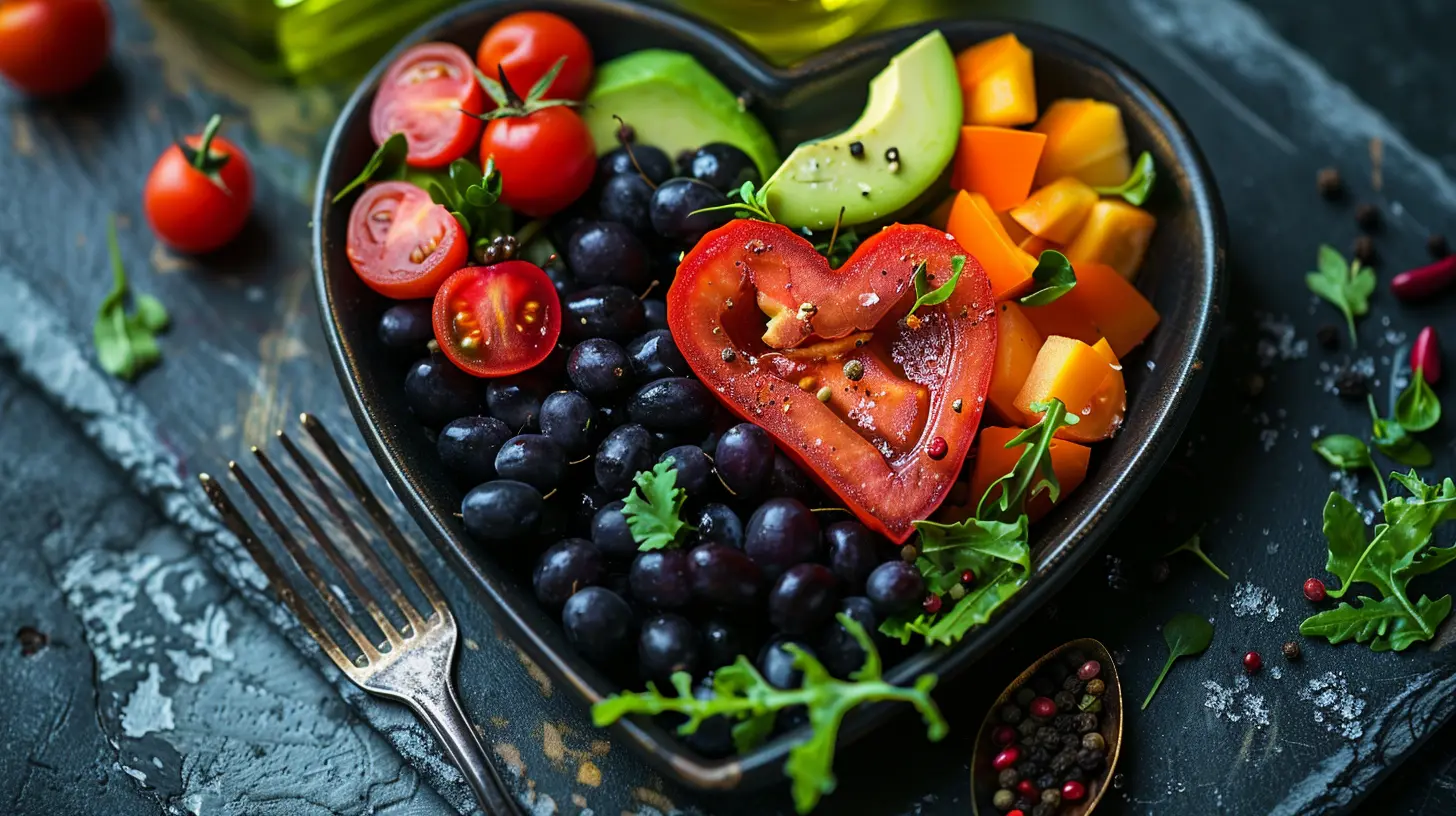Exploring the Connection between Diet and Cardiovascular Health
25 September 2025
Introduction
Ever heard the saying, "You are what you eat"? Well, when it comes to your heart, this couldn't be more true. Your diet plays a crucial role in your cardiovascular health, affecting everything from blood pressure to cholesterol levels and overall heart function. But how exactly does what you put on your plate impact your heart? And what foods should you be eating (or avoiding) for a healthier cardiovascular system?
In this article, we'll break it all down in simple terms, making it easy for you to take charge of your heart health—one bite at a time.

How Diet Affects Your Heart
Your heart works tirelessly to pump blood throughout your body, delivering oxygen and nutrients to keep you alive. However, the wrong diet can place extra stress on your cardiovascular system, leading to issues like high blood pressure, clogged arteries, and even heart disease.The food we eat influences key factors like:
- Blood pressure – High-sodium diets can lead to hypertension (high blood pressure), which puts extra strain on the heart.
- Cholesterol levels – Unhealthy fats can raise LDL (bad) cholesterol, increasing the risk of plaque buildup in the arteries.
- Inflammation – Processed foods and added sugars can trigger chronic inflammation, a major contributor to heart disease.
- Blood sugar levels – Poor diets often lead to insulin resistance, which increases the risk of both diabetes and heart disease.
The good news? The right diet can do just the opposite—protecting your heart, improving circulation, and even reversing some damage.

The Best Heart-Healthy Foods
If you want to keep your heart in top shape, focus on a diet rich in nutrient-dense, whole foods. Here are some of the best heart-loving foods you should be eating:1. Fatty Fish
Salmon, mackerel, and sardines are loaded with omega-3 fatty acids, which reduce inflammation, lower triglycerides, and improve heart health. Eating fish twice a week can significantly cut down your risk of heart disease.2. Leafy Greens
Spinach, kale, and Swiss chard are packed with vitamins, minerals, and antioxidants, helping lower blood pressure and prevent arterial stiffness. Plus, they're rich in nitrates, which improve circulation.3. Berries
Blueberries, strawberries, and raspberries contain powerful antioxidants called polyphenols that help fight oxidative stress and reduce inflammation—both of which are great for heart health.4. Nuts and Seeds
Almonds, walnuts, flaxseeds, and chia seeds provide a healthy dose of fiber, protein, and unsaturated fats. They're excellent for lowering cholesterol and improving overall heart function.5. Whole Grains
Oats, quinoa, brown rice, and whole wheat contain fiber that helps lower LDL (bad) cholesterol while keeping blood sugar levels stable. Refined grains? Not so much. Stick to whole, unprocessed versions.6. Avocados
Avocados are loaded with heart-healthy monounsaturated fats that help reduce inflammation and support good cholesterol levels. Plus, they're delicious—win-win!7. Dark Chocolate
Yes, you read that right! Dark chocolate (at least 70% cocoa) is packed with flavonoids that help reduce blood pressure and boost circulation. Just remember, moderation is key.8. Beans and Legumes
Lentils, chickpeas, and black beans are rich in fiber, plant-based protein, and heart-friendly nutrients. They help lower cholesterol, manage blood sugar, and improve overall heart function.9. Healthy Oils
Olive oil is a staple of the heart-healthy Mediterranean diet. It's packed with antioxidants and healthy fats that reduce inflammation and protect against heart disease. Swap out processed vegetable oils for extra virgin olive oil whenever possible.10. Green Tea
Loaded with catechins and antioxidants, green tea supports heart health by reducing cholesterol, boosting metabolism, and keeping your arteries flexible.
Foods That Harm Your Heart
Now that you know what to eat, let's talk about what to avoid. Certain foods wreak havoc on your heart and should be limited (if not completely cut out).1. Processed and Fast Foods
These are often packed with trans fats, excess sodium, and added sugars. Burgers, fries, and packaged snacks might be convenient, but they’re terrible for your heart.2. Sugary Drinks
From soda to energy drinks, these beverages flood your bloodstream with sugar, leading to insulin resistance, obesity, and a higher risk of heart disease. Water, herbal tea, or black coffee are much better choices.3. Refined Carbs
White bread, pasta, and pastries made from refined flour spike blood sugar levels and contribute to inflammation. Swap them for whole grain alternatives whenever possible.4. Red and Processed Meats
Bacon, sausages, hot dogs, and other processed meats are loaded with unhealthy fats, sodium, and preservatives that significantly raise heart disease risk. Try plant-based protein sources or leaner cuts of meat instead.5. Excessive Alcohol
While moderate red wine consumption may have some heart benefits, too much alcohol can raise blood pressure, increase triglycerides, and contribute to obesity. Keep it in check!6. High-Sodium Foods
Canned soups, frozen meals, and salty snacks can lead to high blood pressure and water retention. Always check food labels and opt for fresh, whole foods instead.
The Mediterranean Diet: A Gold Standard for Heart Health
If you're looking for an easy and effective eating plan, the Mediterranean diet has been praised for its heart-healthy benefits. This diet emphasizes:✔ Plenty of fruits, veggies, whole grains, and healthy fats (like olive oil)
✔ Moderate consumption of fish, poultry, and dairy
✔ Limited intake of red meat and processed foods
✔ A focus on fresh, minimally processed meals
Studies show that following a Mediterranean-style diet can lower the risk of heart disease by nearly 30%! That’s some serious motivation to stock up on olives, nuts, and fresh seafood.
Lifestyle Habits That Complement a Heart-Healthy Diet
Of course, diet is just one piece of the puzzle. To truly protect your heart, you should also:🧘 Exercise regularly – Aim for at least 30 minutes of moderate activity most days of the week. Walking, cycling, or even dancing counts!
😴 Get enough sleep – Poor sleep increases stress hormones and leads to weight gain, both of which can impact heart health.
🧘♂️ Manage stress – Chronic stress contributes to high blood pressure. Try meditation, deep breathing, or simply unplugging for a while.
🚭 Quit smoking – Tobacco use is a leading cause of heart disease. If you smoke, quitting is one of the best things you can do for your heart.
Conclusion
Your heart works non-stop to keep you going, so the least you can do is give it the nourishment it deserves. By eating a balanced, heart-healthy diet rich in whole, unprocessed foods, you can lower your risk of heart disease, improve circulation, and feel your absolute best.Remember, small changes add up. Start by swapping out processed snacks for fresh fruits, trading sugary drinks for water, and adding more plant-based meals to your diet. Over time, these little tweaks can lead to a healthier, stronger heart.
So, what's on your plate today? Your heart is counting on you!
all images in this post were generated using AI tools
Category:
CardioAuthor:

Angelo McGillivray
Discussion
rate this article
1 comments
Sonya Dillon
Thank you for this insightful article! It highlights the crucial link between diet and cardiovascular health, reminding us how important our food choices are for overall well-being.
October 1, 2025 at 3:28 AM

Angelo McGillivray
Thank you for your kind words! I'm glad you found the article insightful. Healthy food choices truly play a vital role in cardiovascular health.


